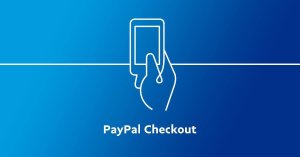Gemini denies exposure to Silicon Valley and Signature Bank
Gemini, the cryptocurrency exchange founded by the Winklevoss twins, assured its customers that they have no exposure to the troubled banks and that their funds are safe and accessible.

To address any concerns around the ongoing banking crisis in the United States, Gemini exchange has taken to social media to inform stakeholders that all funds are held and secured by reputable organizations. Including JPMorgan Chase & Co (NYSE: JPM), Goldman Sachs Group Inc (NYSE: GS), and State Street Corp (NYSE: STT).
The fall of the three American banks, including Silicon Valley Bank (SVB) and Signature Bank, is leaving crypto firms and their customers uncertain about the safety of their funds. The three banks have been dissolved due to financial difficulties, which raised concerns over potential implications of the crisis for the crypto market.
Gemini was also keen to assure its users about the reserves of its GUSD stablecoin, which the company confirms that all tokens are backed 1:1 with the dollar and are available for redemption at any time.
“It’s very sad to hear the news about Signature Bank. They have been incredible partners to Gemini and our industry for the better part of a decade. We have zero customer funds, and zero Gemini dollar (GUSD) funds held at Signature Bank,” the exchange noted.
New York regulators are already investigating Gemini over “false and misleading” claims the Winklevoss-owned exchange had made about whether client funds are insured by the government.
The New York Department of Financial Services (NYDFS) said Gemini’s communications with Earn customers contained ambiguous terminology that their GUSD stablecoin deposits are protected by the Federal Deposit Insurance Corporation (FDIC) coverage.
Gemini customers said that the exchange failed to distinguish the FDIC status of its own bank deposits and customers’ high-yield program. In other words, those statements implied that FDIC insurance was available for Gemini Dollar (GUSD) holdings, while the agency does not insure brokerage accounts.
Under the Federal Deposit Insurance Act, it’s prohibited to use the FDIC’s name or logo to imply customer funds are government insured when they are not. The agency also has the authority to assess civil money penalties against anyone “implying that an uninsured product is FDIC–insured or knowingly misrepresenting the extent and manner of deposit insurance.”









